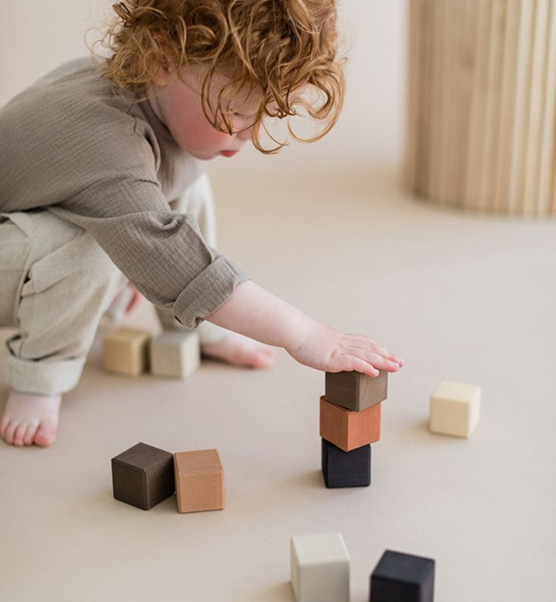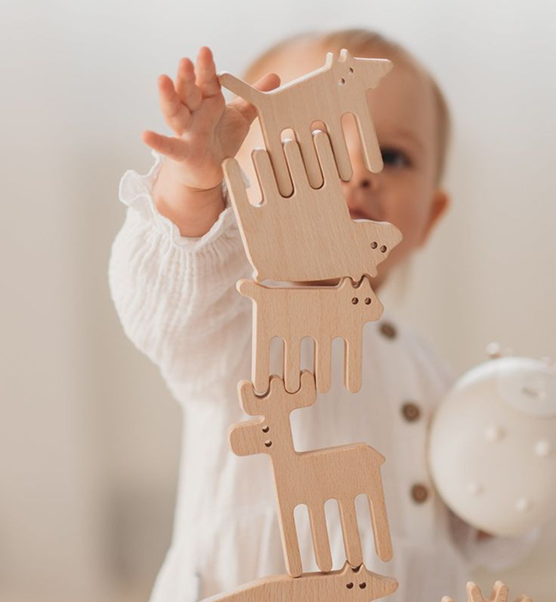In my capacity as parenting author, I am lucky to get to read a lot of parenting books early. It’s a perk! One of the recent ones was Mom Genes, which is out tomorrow from Abigail Tucker. It’s all about the evolutionary science of how being a mother changes our brains. I was lucky that Abigail agreed to do an “interview” with me all about her wonderful book, which you can read below.
About me: I’m a journalist interested in the biology of domestic life and how we can use scientific insights to understand our closest relationships. My first book, “The Lion in The Living Room”, told the story of how an invasive feline ended up sitting there on your couch as your pet kitty cat.
My new book, Mom Genes, is about the sweeping brain changes that female mammals, from wallabies to blue whales to women, undergo when they become mothers. But it’s also about the hidden forces –your teenage babysitting resume, say, or your childhood memories of your mom, or whether you’ve lived through a terrorist attack or a subprime mortgage crisis, or whether your baby is a boy or a girl — that help determine how those core changes play out. I’m exploring the universality of the maternal transformation, and also what makes each human mother unique.

Basically, the minds of new mothers are reshaped by the hormones of pregnancy, childbirth and breastfeeding. The neurochemicals prompt a cascade of genetic changes that lead to new connections between neurons, and ultimately shifts in brain architecture.
Scientists can document some of this on brain scans, but you and I can also recognize signs of brain changes just by chatting with friends. Women transitioning into motherhood are prone to psychological problems – postpartum depression, most famously, but also other mood issues and obsessive compulsive disorder, along with the classic fogginess that we call “mom brain.” These troubles crop up most often right around the time of a woman’s first birth but there may be lifelong mental implications.
The adaptive core of this psychological shift is women’s “sensitization” to baby cues. There’s a rewiring of women’s systems of desire, which makes babies irresistible to us – or at least, a lot less icky than they seemed before. (Even their diapers start to smell
kind of good.) Meanwhile, we also become more aware of certain aspects of the immediate environment, which is helpful in keeping babies safe.
The upside to all this heightened awareness is that new moms are actually pretty skilled at certain tasks – like reading emotions and recognizing and keeping an eye on strangers, especially strange men. (Rat moms are also champs at locating Froot Loops in a maze, but so far I’ve had no luck in this regard, I’m sorry to say.)
The downside for human moms is that, perhaps because we are so obsessed with our newborn here and now, we seem to backslide a bit in other departments. In particular our memories seem to suffer. There is a lot of controversy and scientific back and forth about this issue, and sleep deprivation almost certainly comes into play – it’s something like 700 lost hours per year! But many scientists do think that moms’ verbal recall is an area that takes a cognitive hit. New moms just aren’t so hot at remembering words.
This may be because we know that the SAT will soon be extinct so our babies won’t have to worry about vocab. Kidding! But honestly, it’s not the best news for writers like you and me, Emily. And I was pregnant when I wrote this book, alas …
This is very interesting and, like a lot of the stuff you talk about in the book, it kind of makes sense from an evolutionary perspective. These kind of questions are what I liked best about the book — thinking about the very long scale of what shapes our choices. Within this space — what did you find most surprising?
Ok. So many things surprised me about mothers’ evolution. But one thing that continues to fascinate me is how powerful and abrupt the transition into motherhood is. It’s almost like a switch is flipped. A virgin rat (that’s what scientists call non-mothers) will ignore or even kill rat pups. She finds them to be quite repulsive. But a few hours before this rat gives birth, her priorities change. She will start choosing the company of squirmy little rat pups over servings of food and even over hits of cocaine, risking an electric shock to be with them.
In one of my favorite experiments, a scientist rigged up a system where mom rats could press a bar for either food or pups, which rolled down a little chute not unlike a playground slide. One rat mom hit the pup bar 684 times over a few hours! It was a pup avalanche. The scientist got so sick of sticking new babies in the shoot that he basically quit the experiment.
You can see similar behavior in human moms. In brain scans, our reward centers catch fire for our own kids even more than for other babies, and outside the lab, hell and high water can’t keep us from them. We’ve all read stories about moms who have worked themselves to the bone for their children or risked their own lives by fighting off mountain lions with their bare hands or beating back bears with baseball bats.
There’s a catch, though. As strong as the maternal motive is, it is also fragile. Mammalian moms, humans included, have also evolved to be sensitive to environmental cues, especially cues of chronic resource scarcity (as opposed to a more acute threat like a predator.) At the end of the day mothers are built to pass our genes into eternity, not just protect a particular infant. If animal mothers sense there is not enough food around to keep the present crop of babies alive, they will sometimes cut their losses and walk away, and try their luck again when conditions improve.
Happily this threshold is high for human moms, and those of us living in modern America most often have access to enough calories to feed our kids. At the same time, subtle changes in financial resources may be powerful enough to modify our biology. For instance, jumps in unemployment can correspond with higher miscarriage rates, lower birthweight babies and more accidental child injuries.
And it’s not just money. A human mom is constantly being changed by her environment, even potentially by stuff like how much plastic she’s been exposed to in her lifetime, or whether she’s just just had a boy or a girl. That last one is especially interesting to me, since I’ve had both!
To slightly widen the aperture: your book weaves your own experiences in with the science, something which I try to do a bit also. How much of this was really an attempt to understand what was going on with your own parenting experience, and how much was something you wondered about before the kids? In my case I started writing because of being pregnant, but had thought about a lot of related issues leading up to that.
I’ve since learned that there are very few constants in human mothering – women employ so many approaches to sleeping, weaning, discipline, baby talk, and everything else. Across the globe there are radical cultural differences in maternal behavior. In parts of Papua New Guinea, toddlers spend a bunch of their time dangling in a netted sack called a bilum that hangs from a mother’s forehead. (You can order one on Etsy, by the way!) In Japan, it’s pretty standard practice to co-sleep with your child into elementary school. Some researchers even think that the temperament of babies varies from country to country.
Anyhow, what I call the maternal instinct is the obsessive desire to help your kid, not some sort of detailed instruction manual that tells a new mom how to act: Nobody has that “automatically,” which is why we need books like yours to help us identify strategies that work in our here and now. It’s also why robotic bassinets are flying off the shelves.
The closest thing that women have to an automatic mothering behavior is something I’d never even heard of after having multiple kids. It’s called left-handed cradling bias. Humans and other mammalian mothers, from flying foxes to walruses, are prone to carry or keep babies on their left. This apparently helps transfer the maximum amount of information about our babies’ state to the right hemisphere of moms’ brains, where our emotions are processed. It also allows infants to view the more expressive side of our own faces. Some scientists even suspect that women who buck the trend and hold babies on the right are more likely to be depressed. (Researchers have used family photo albums to probe this last idea, which is just a theory for now.)
I am a resolute left-holder—I find it weird to even change a diaper if the kid’s head is on my right – but that only gets you so far in twenty-first century America, you know? My gold star has not yet arrived. I still hired a sleep coach. (Winces.) Twice. Heck, there’s a professional lice picker in my iPhone contacts.
I came to realize that the keystone of the maternal instinct is not knowing, but rather desiring to know. This motive unites mothers everywhere. And there’s a lot of comfort in that idea.
And I think you’re right that a lot of parenting/mothering/fathering/etc is really about not knowing and kind of trying to embrace that. I feel like loss of control, or the acceptance of loss of control, has been such a huge thing for me in being a parent. You have this idea of what your kid is going to be like and then they are … not. And it can be hard to let go. Similarly it’s hard to let go of the idea that there is a right way to parent and you have to get it or else you’re bad. This is where the cross cultural stuff really helps. There are many right ways!
Before I let you go off this email chain let me ask what is next for you? Another book?
Also, I feel I must mention that as you probably know I went to preschool at some point with your husband and I *THINK* you live on my childhood street. It is a small world.
Next up: well, that depends on whether there is summer camp. (Shuts eyes and bows head.) Although we did book a long weekend with equally child-saddled friends at what appears to be a rural Midwestern Christmas tree farm just in case there is nothing else to do. (Note to parents: don’t scour Airbnb in a sleep-deprived state.) But honestly, researching the maternal instinct did involve a certain amount of kid
avoidance, and my fourth child — my pandemic baby — only has a little babyhood left. So I’ve punted the what’s-next question, and temporarily cleared my schedule: Come what may, I’m looking forward to spending the summer with my children.
Your summer sounds lovely, fingers crossed for camp and for some fun even if it doesn’t happen. (I think it will!) Thanks for doing this, and for this great book.
Community Guidelines





















Emily:
Abigail, it’s so great to get to “talk” to you about your book! I’m excited to dive into it (remind me to ask about “mom brain” which people ask me about all the time and is not in any of my books…) But first: can you tell us in your words who you are, what you do, and what this book is all about?